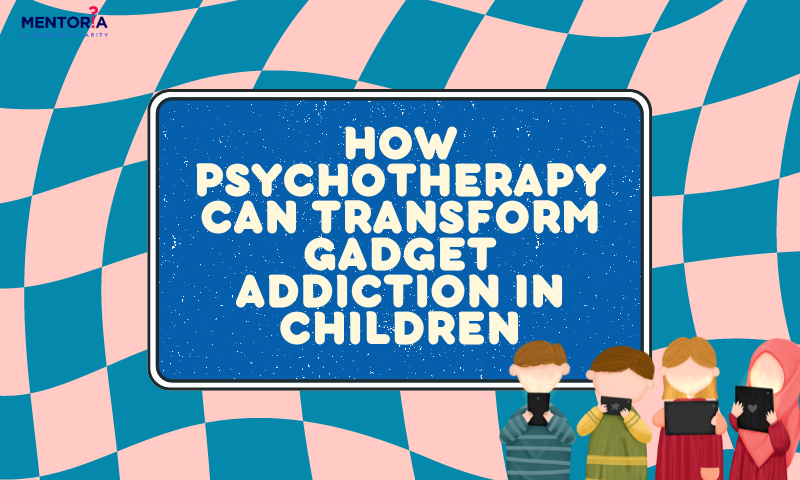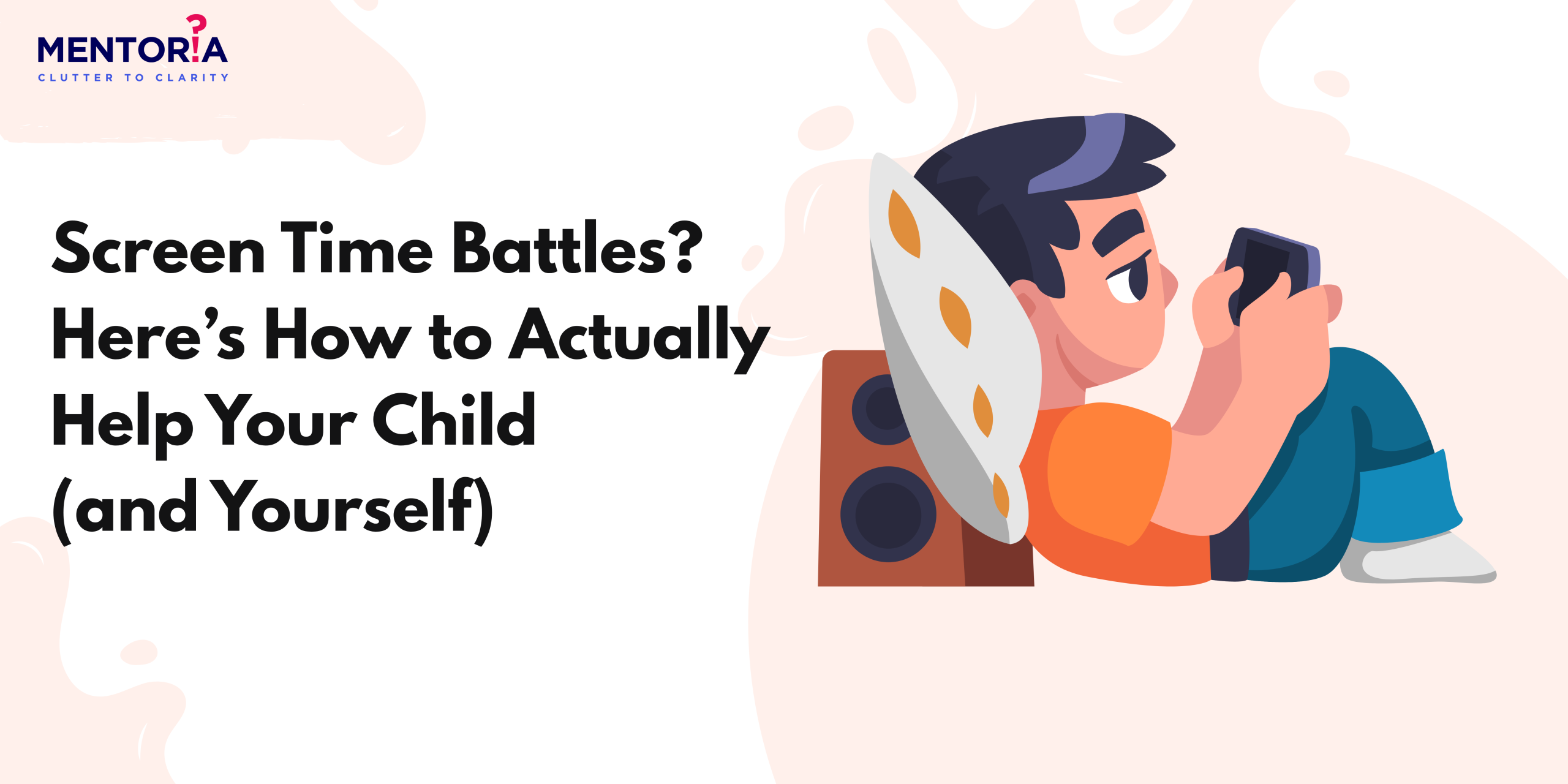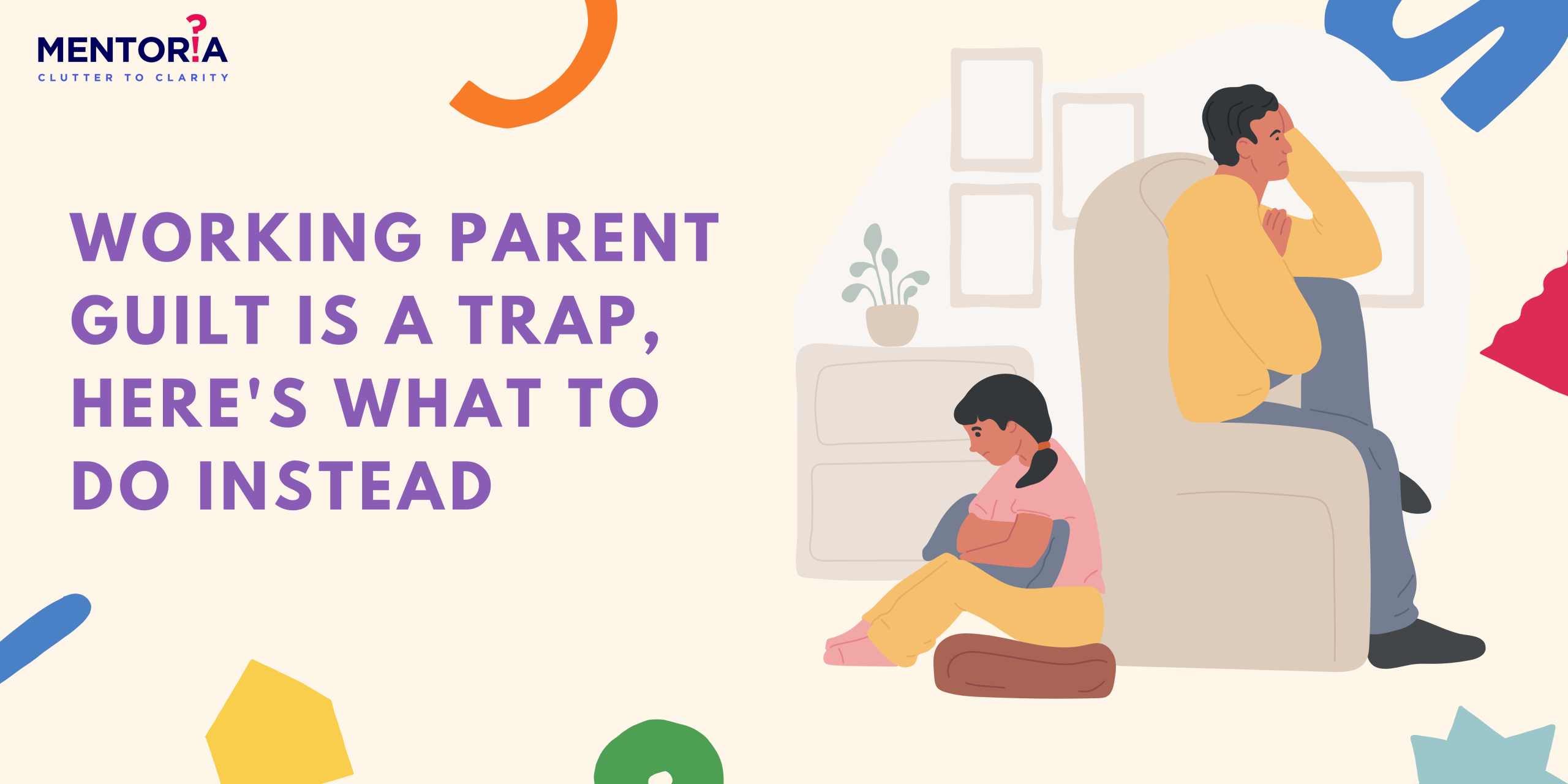How Psychotherapy Can Transform Gadget Addiction In Children

Jump to Section
In today’s digital age, gadgets have become an integral part of our lives. While they offer countless benefits, excessive use of gadgets, especially among children, can lead to addiction and negatively impact their overall well-being. But fear not! There is a solution that can help children break free from gadget addiction and pave the way for a healthier, more balanced lifestyle. Enter psychotherapy, a powerful tool that can transform gadget addiction into a pathway to a brighter future. In this blog, we will explore how psychotherapy can effectively address gadget addiction in children, enabling them to regain control, find balance, and embrace a more fulfilling life.
Understanding Gadget Addiction: The Digital Temptation
To tackle any problem, we must first understand it. Gadget addiction is characterised by an excessive, compulsive, and uncontrolled use of digital devices, such as smartphones, tablets, and gaming consoles. The allure of screens, social media, and endless entertainment can draw children into a cycle of dependency, leading to a host of negative consequences, including poor academic performance, social isolation, sleep disturbances, and even mental health issues. Recognizing the signs of gadget addiction is crucial for early intervention. A study by the University of Pittsburgh found that children who use electronic devices for more than two hours a day are more likely to be diagnosed with attention deficit hyperactivity disorder (ADHD). Another study by the University of Oxford found that people who use social media for more than two hours a day are more likely to experience symptoms of depression and anxiety.
The Role Of Psychotherapy: A Beacon Of Hope
Psychotherapy, also known as talk therapy, provides a safe and supportive environment for children to explore their thoughts, emotions, and behaviours related to gadget addiction. Skilled therapists employ various therapeutic approaches, such as cognitive-behavioural therapy (CBT) or family therapy, to address the root causes of addiction and develop healthier coping strategies. By engaging in meaningful conversations, therapists empower children to gain self-awareness, understand the underlying emotional needs driving their excessive gadget use, and explore alternative activities that bring joy and fulfilment.
Building Coping Skills: From Digital Dependency To Emotional Resilience
One of the key aspects of psychotherapy is helping children build coping skills to navigate their emotions and stressors effectively. Therapists work collaboratively with children to identify triggers that lead to excessive gadget use and develop healthier coping mechanisms. Through techniques like mindfulness exercises, deep breathing, and emotional regulation strategies, children learn to manage boredom, anxiety, and other emotions without resorting to screens. This equips them with the tools needed to address underlying emotional needs and face life’s challenges with resilience and adaptability. A study published in the Journal of the American Academy of Child and Adolescent Psychiatry found that cognitive-behavioural therapy (CBT) was effective in helping children with gadget addiction develop coping skills. In the study, children who received CBT showed significant improvement in their ability to manage their emotions and resist the urge to use gadgets excessively.
Strengthening Family Bonds: A Support System For Change
Family involvement is crucial in addressing gadget addiction. Psychotherapy often includes family therapy sessions where parents and siblings actively participate in the therapeutic process. These sessions provide an opportunity to improve communication, establish healthy boundaries, and foster a supportive environment at home. By understanding the family dynamics and collectively working towards a gadget-free lifestyle, families can reinforce positive behaviours, encourage alternative activities, and strengthen their bond. A study published in the Journal of Family Therapy found that family therapy was effective in helping families with gadget addiction. In the study, families who received family therapy showed significant improvement in their communication, problem-solving skills, and ability to set boundaries around technology use.
Exploring Alternative Activities: Rediscovering The Joys Of Real Life
One of the goals of psychotherapy is to help children find alternative activities that bring them genuine joy and fulfilment. Therapists assist children in exploring their interests, talents, and hobbies that have taken a backseat due to excessive gadget use. From engaging in sports, creative pursuits, outdoor adventures, or joining clubs and social groups, children discover a world beyond screens. They learn to appreciate the beauty of face-to-face interactions, develop real-life connections, and experience the rewards of pursuing their passions.
Nurturing A Healthy Digital Diet: Finding Balance In The Digital Age
Achieving a healthy relationship with technology is paramount in overcoming gadget addiction. Psychotherapy educates children about the importance of a balanced digital diet. Therapists work with children to set realistic screen time limits, establish tech-free zones, and encourage mindful and purposeful gadget use. By creating a structured and mindful approach to technology, children develop self-discipline, time-management skills, and the ability to prioritise their overall well-being. A study published in the journal Pediatrics found that setting realistic screen time limits was effective in helping children with gadget addiction. In the study, children who had screen time limits in place showed significant improvement in their sleep quality, academic performance, and social skills.
Creating A Supportive Peer Network: Finding Connection Offline
Alongside family involvement, psychotherapy can help children develop a supportive peer network. Group therapy sessions or support groups provide a platform for children to connect with others facing similar challenges. Sharing experiences, discussing strategies, and building friendships in a non-judgmental environment can be instrumental in breaking the cycle of gadget addiction. The support and understanding from peers foster a sense of belonging and encourage positive change.
Educating Digital Literacy: Empowering Responsible Technology Use
Psychotherapy can also play a role in educating children about digital literacy and responsible technology use. By empowering children with knowledge and critical thinking skills, they can navigate the digital landscape responsibly and make informed decisions about their gadget use. Here are some examples of how psychotherapy can be used to educate children about digital literacy and responsible technology use:
- Online safety: Therapists can help children understand the risks of online safety, such as cyberbullying, online predators, and data privacy. They can also teach children how to protect themselves online, such as by using strong passwords, being careful about what personal information they share, and reporting any suspicious activity to a trusted adult.
- Cyberbullying: Therapists can help children understand what cyberbullying is, how to deal with it, and how to prevent it. They can also teach children how to support friends who are being cyberbullied.
- Distinguishing reliable information from misinformation: Therapists can help children learn how to evaluate the credibility of information they find online. They can teach children to look for things like the author’s credentials, the source of the information, and the date the information was published.
- Maintaining a positive online presence: Therapists can help children understand the importance of maintaining a positive online presence. They can teach children how to create a social media profile that reflects their values, how to interact with others online in a respectful way, and how to manage their online reputation.
Here are some specific examples of how therapists can educate children about digital literacy:
- Therapists can use role-playing exercises to help children learn how to deal with cyberbullying. For example, they might have the child role-play being cyberbullied and then discuss how they could have handled the situation differently.
- Therapists can use online resources to help children learn about digital literacy. For example, they might have the child watch a video about online safety or read an article about how to distinguish reliable information from misinformation.
- Therapists can work with parents to help them create a safe and supportive home environment for their children. This might include setting screen time limits, monitoring their children’s online activity, and talking to them about the importance of digital literacy.
Long-Term Relapse Prevention: Sustaining Positive Change
Psychotherapy goes beyond just addressing immediate concerns. Therapists work with children to develop long-term relapse prevention strategies. By identifying potential triggers and implementing strategies to manage cravings or setbacks, children can maintain their progress and sustain a healthier lifestyle. Regular check-ins, continued therapy sessions, and ongoing support can provide the necessary tools and guidance to ensure lasting positive change. A study published in the journal Clinical Psychology Review found that children who received psychotherapy for gadget addiction were 40% less likely to relapse than those who did not receive treatment. Here are some specific strategies that can be used for long-term relapse prevention:
- The first step is to identify the triggers that lead to excessive gadget use. These triggers can be anything from boredom to stress to social media notifications. Once the triggers have been identified, children can develop strategies to avoid or manage them.
- Children also need to develop coping mechanisms to deal with cravings or setbacks. These coping mechanisms can include things like relaxation techniques, mindfulness exercises, or talking to a trusted adult.
- It is also important for children to maintain a healthy digital diet. This means setting realistic screen time limits, establishing tech-free zones, and engaging in alternative activities.
- Regular check-ins with a therapist can help children stay on track and identify any potential problems early on.
- Ongoing support from parents, family, and friends can also help children maintain their progress.
Empowering Change With Mentoria
Gadget addiction among children is a prevalent concern in today’s digital landscape, but it is not a lost battle. Psychotherapy offers a beacon of hope, empowering children to break free from the grips of gadget addiction and embrace a healthier lifestyle. Through self-reflection, coping skill development, family support, alternative activities, and finding a balance in their digital diet, children can reclaim control, rediscover the joys of real-life experiences, and nurture their overall well-being. Mentoria is here to support families on this journey, providing expert guidance and resources to ensure a successful and sustainable recovery for children struggling with gadget addiction. So, let us join hands, unplug from our screens, and guide our children towards a brighter future where gadgets enrich their lives rather than overpower them. Remember, change begins with understanding, and together, we can pave the way for a generation that thrives in the digital age.









